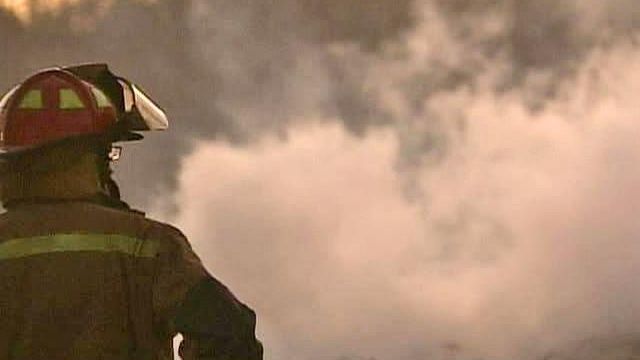Raleigh Fire Dept. Recommends Tougher Codes
From the ashes of a fire that destroyed 38 townhomes in north Raleigh came new recommendations to make townhouses and apartments safer.
Posted — UpdatedThe wind-driven fire destroyed 38 townhouses in the Pine Knoll Townes complex off Capital Boulevard in north Raleigh on Feb. 22, 2007.
The Raleigh Fire Department recommended changes to the city's building codes after reviewing a report by independent fire-safety experts that was released in early September. The City Council was expected to discuss them on Tuesday, Oct. 16.
The proposed rules would require builders to use non-combustible material for soffits – the paneling on the underside of eaves – and a certain type of vinyl siding designed to slow the spread of the fire.
Gene Johnson, whose lost his family's townhouse, described the fire as spreading rapidly through the soffits.
"With us, it came from the back wall, up the back. It never entered the house until it hit the soffit and into the attic," he said.
City leaders said the new rules would not prevent a fire, but could keep one from spreading like the Pine Knoll Townes fire. The consultant's report described how the blaze bypassed firewalls between units by passing through the attics.
For the Johnson family, it's a small price to pay for all that was lost.
"Any recommendations that can improve either the structure, improve the materials that help this from happening again, that would be fantastic," Johnson said. “We’re just trying to unpack and put everything together again."
• Credits
Copyright 2024 by Capitol Broadcasting Company. All rights reserved. This material may not be published, broadcast, rewritten or redistributed.






